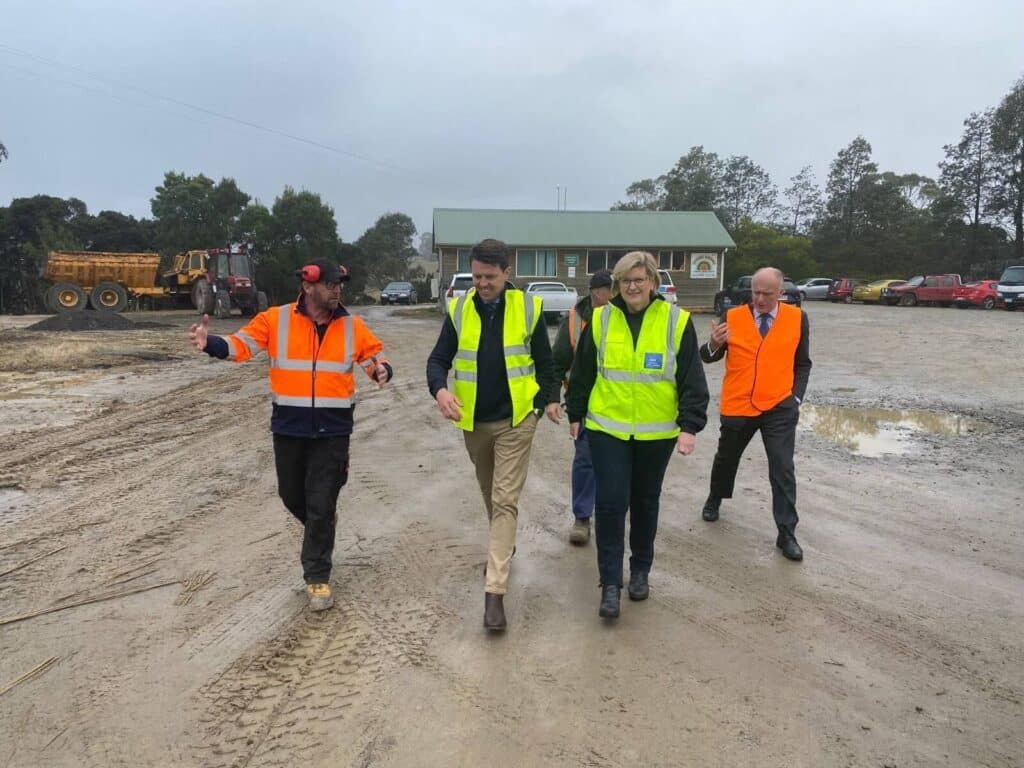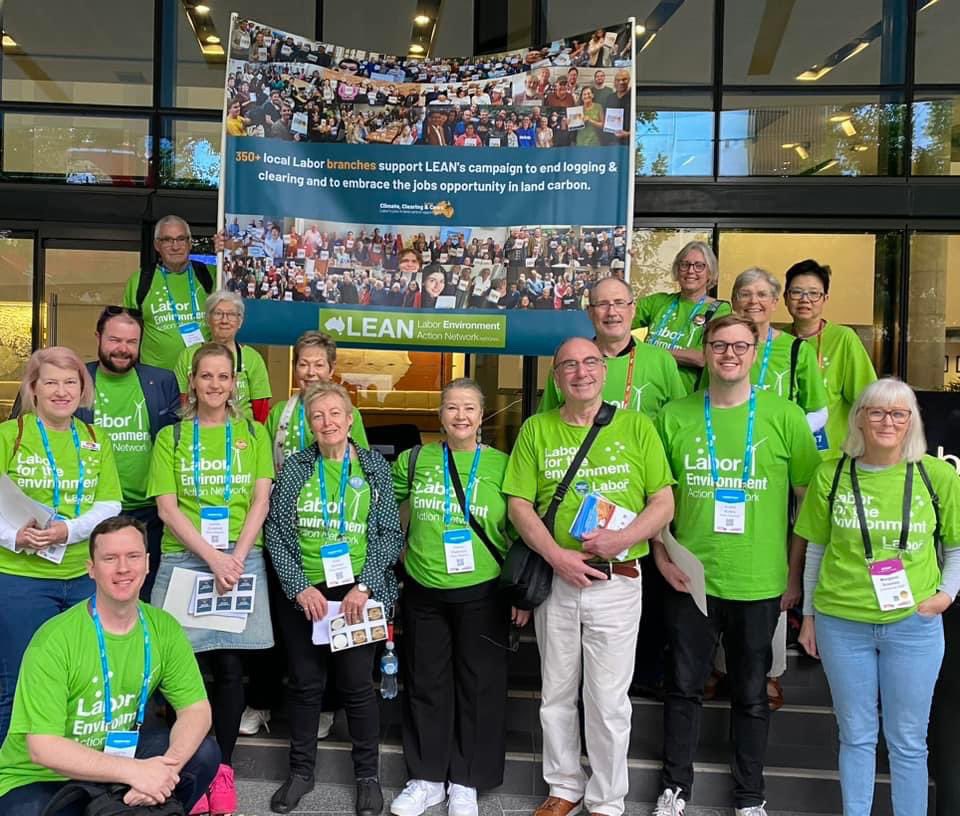Labor will rewrite its national forest policy after delegates passed an amendment at the National Conference in Brisbane.
The new policy will reiterate the ALP’s commitment to “expand Australia’s plantation estate” and is committed to “building Australia’s carbon and environmental markets.”
However, it will not include a commitment to “move to 100% plantation timber and end broadscale land clearing before the next federal election.”
Yesterday, Felicity Wade moved the amendment from the Labor Environment Action Network (LEAN) faction.
A delegate told Wood Central that changes were heavily watered-down from the policy in the Measuring What Matters manifesto.
Wood Central can reveal changes to paragraphs 56, 57, 58 and 60 of Chapter 3 – Parks and Reserves, caring for Landscapes and Waterways, which will appear in the updated ALP National Platform early next week.

Ms Wade has welcomed the commitment, with the partial adoption of the LEAN manifesto a step to addressing the “totally inadequate” policy.
Major changes to the platform include the following:
Labor supports the sustainable future of Australia’s forests and forest products industry and recognises the value and role of our forests in storing carbon and protecting biodiversity. Labor will work with states and territories to update the 1992 National Forest Policy Statement to ensure it is contemporary and fit for purpose.
We will:
- Expand Australia’s plantation estate to meet domestic and international demand for high-value, sustainably sourced wood products, and will develop an industry plan that facilitates regional job growth and vibrant, sustainable communities.
- Deliver the management and restoration of native forests, recognising and rewarding carbon and biodiversity values and the need for their active and ongoing management.
- Consistent with current government policy, ensure the application of National Environmental Standards to Australia’s native forests.
- Harness the social, environmental, and economic benefits that our forests can provide.
- Recognise the skills, knowledge and competencies of timber workers and their communities and the central role First Nations communities play in restoring the country and determining social, economic and environmental benefits from forest management activity.
According to a statement obtained by LEAN, 160 of 250 ALP branches in NSW endorsed the plan, “including every branch from areas where native forest logging takes place.”
Native forestry is highly contentious in NSW. In May, Greens MP Sue Higginson submitted a Private Members Bill titled ‘Forestry Amendment (Koala Habitats) Bill 2023’.
Wood Central understands that the Minns Government remains ‘on the fence’ over the future of native forestry, with the outgoing Perrottet Government prepared to trade native forestry for carbon credits.
Ms Wade said the new commitment “will properly assess the biodiversity values, the carbon values and how they can be monetised to create good jobs.”
“It’s high time for the revamp, and a proper, fair process is how Labor should attack these problems.”
“We trust the minister will develop and deliver a robust and effective policy.”
In May, Wood Central reported that the Albanese Government had established a new Strategic Forest and Renewable Materials Partnership, which will act as a forest industry advisory committee stipulated in the Regional Forest Agreements Act 2002 (RFA Act).
Liberal Senator and former Agriculture Minister Jonno Duniam said Labor had taken a backwards step.
“There’s no question that LEAN’s involvement in updating the national forest policy statement will place significantly increased pressure on (Agriculture Minister) Murray Watt to end one of Australia’s, and the world’s, most sustainable industries,” Senator Duniam told Australian Associated Press.

Labor will “work with states and territories to update the 1992 National Forest Policy Statement to ensure it is contemporary and fit for purpose.”
It is also “committed to delivering the Glasgow Leaders Declaration on forests and land use, which commits Australia to “halt and reverse forest loss and land degradation by 2030”.
Environment Minister Tanya Plibersek welcomed the reforms, which support a proposed nature repair market and further philanthropic and private-sector funding.
Ms Plibersek says both are “essential to action on biodiversity issues.”
“We’re proposing a nature repair market to sit side-by-side with the carbon market,” Ms Plibersek told a panel on the sidelines of the conference on Thursday.
The new ALP Platform will also “ensure the application of National Environmental Standards to Australia’s native forests.”
Last month, Wood Central reported that Ms Plibersek was drafting the new standards as part of a revamp of environmental law and has vowed to apply them to the RFA’s.
RFAs are federal-state deals that have effectively enjoyed an exemption from national environment laws on the basis that reserves and forest practice requirements are sufficient.
In effect, they are long-term plans for the sustainable management and conservation of Australia’s native forests.
There are 10 RFA’s in four states covering commercial native forestry regions – five in Victoria, three in New South Wales and one each in Western Australia and Tasmania.
The native timber industry is sweating on the detail, fearing new standards could “destroy” the remaining native forest management in NSW and Tasmania.
Ms Plibersek said the government recognised the need for timber products and jobs but was determined to reform “broken” environmental laws.
“We know native forests are valuable for their carbon storage and native habitats including for endangered animals like koalas, Leadbeater’s possums and greater gliders,” Ms Plibersek told The Australian.
“We are committed to reforming Australia’s environmental laws,” Ms Plibersek said, “these laws are broken.”
“They don’t protect our environment, and they don’t work for business.”
Wood Central will provide additional comments throughout the day.






